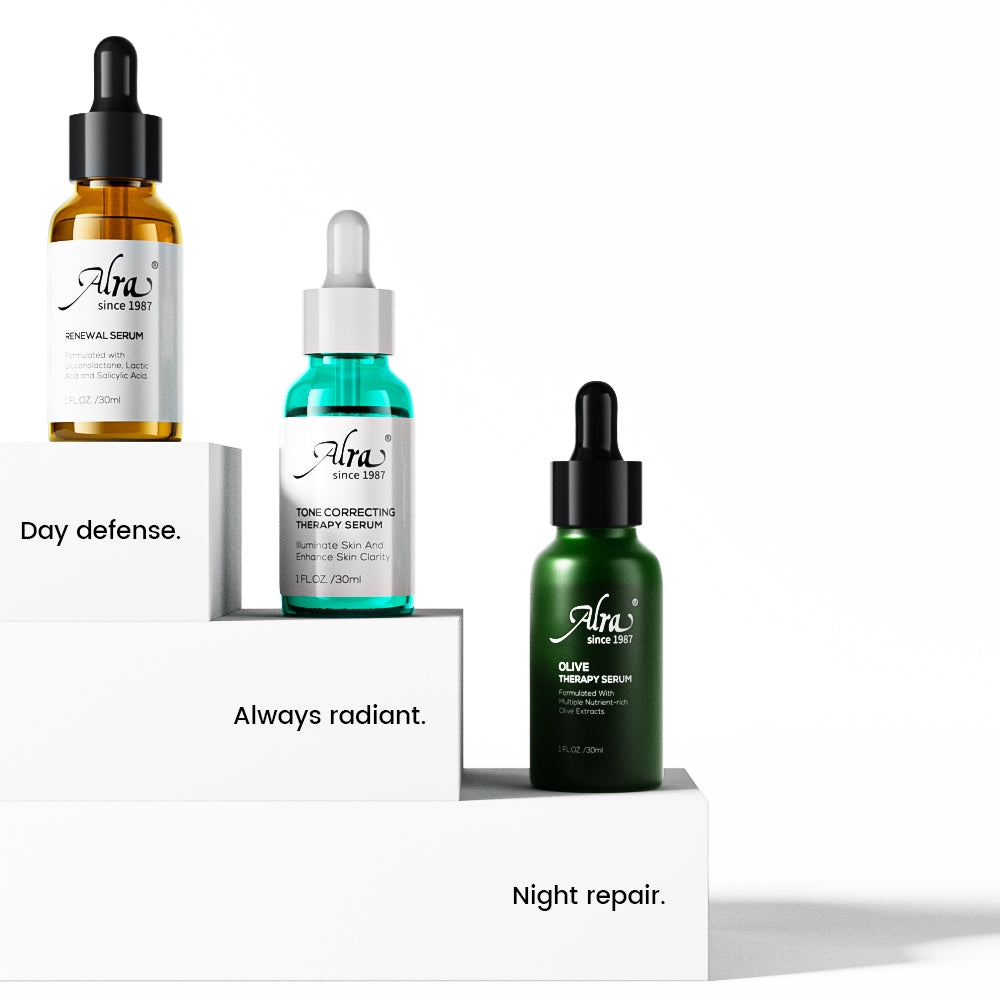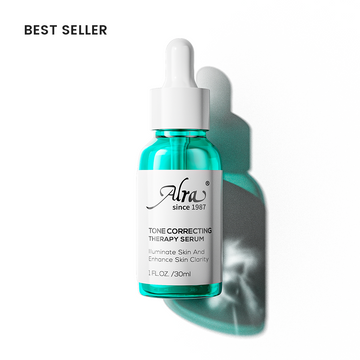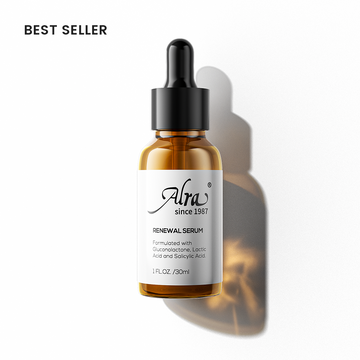You’ve probably seen the phrase “skin renewal” on product labels or beauty blogs, but what does it actually mean? Is it just a marketing term, or is there real science behind it? The answer: it’s very real. Your skin is constantly renewing itself, and understanding that process can help you care for it in smarter, gentler ways.
The Science of Skin Renewal
Your skin is made up of layers. The outermost layer, the
epidermis, is where skin renewal takes place.
Here’s what happens:
-
New cells form in the lowest layer of the epidermis (the basal layer).
- Over time, these cells flatten, fill with keratin (a protective protein), and slowly move upward.
- By the time they reach the surface, they are dead skin cells (also called corneocytes).
- Normally, these cells shed off naturally in a process called desquamation.
This whole journey takes around 28 days for young skin and can stretch to 40–60 days as we age. That’s why skin often looks duller or rougher over time because the natural turnover slows down, and dead cells start to pile up instead of shedding smoothly.
Why Skin Renewal Matters
When your skin renews efficiently:
-
Texture feels smooth because dead cells don’t linger at the surface.
-
Tone looks brighter since fresh cells reflect light better.
-
Pores stay clearer because buildup is less likely to clog them.
-
Fine lines soften as collagen and elastin support fresh skin underneath.
-
Products work better because there’s less of a “barrier” of dead cells blocking absorption.
When renewal slows down, the opposite happens: rough patches, breakouts, uneven tone, and lackluster skin.
Think of it like repainting a wall. If you slap new paint over chipped old paint, the surface looks bumpy and uneven. But if you sand the wall first, gently, not aggressively, the new paint goes on smooth. That’s exactly how renewal benefits your skin.
The Role of Exfoliation in Renewal
Your skin naturally renews itself, but exfoliation helps keep the process moving at a healthy pace. Exfoliation means removing dead cells that are hanging on longer than they should.
There are two main methods:
-
Physical exfoliation – scrubs, brushes, or devices that manually slough off cells. These can work but are often too harsh, especially for sensitive skin.
-
Chemical exfoliation – acids or enzymes that dissolve the bonds holding dead cells in place. These are often gentler and more effective because they let skin shed naturally without scrubbing.
The most common chemical exfoliants are:
-
AHAs (Alpha Hydroxy Acids): Like lactic acid and glycolic acid. Work on the surface to smooth and brighten.
-
BHAs (Beta Hydroxy Acids): Like salicylic acid. Oil-soluble, so they clear out clogged pores.
-
PHAs (Polyhydroxy Acids): Like gluconolactone. Larger molecules that work more slowly and hydrate while exfoliating, making them ideal for sensitive skin.
When used properly, exfoliation gives your skin a little nudge — helping it renew more efficiently and keeping your complexion clear and radiant.
What You Need to Be Careful About
Just because skin renewal is good doesn’t mean “the more, the better.” Here are the common mistakes to avoid:
Over-exfoliation
Using strong peels too often or layering multiple acids at once can damage your skin barrier. Signs include redness, stinging, tight shiny skin, or breakouts that won’t calm down.
Barrier disruption
Your skin barrier is the thin protective layer that locks in moisture and keeps irritants out. Aggressive exfoliation can strip it, leading to dryness, irritation, and long-term sensitivity.
Sun sensitivity
Freshly renewed skin is more vulnerable to the sun. If you exfoliate without using sunscreen, UV damage can undo all your progress and even speed up aging.
Ignoring hydration
Renewal isn’t just about removing dead cells. If you don’t moisturize, new cells can dry out and your skin may feel rough all over again.
How to Support Healthy Skin Renewal
Here are some practical tips to keep your renewal cycle in balance:
-
Start slow: Begin with exfoliating once a week, then increase gradually if your skin feels comfortable.
-
Pick the right ingredients: Lactic acid and PHAs are great for sensitive or dry skin. Salicylic acid works well if you struggle with blackheads or breakouts.
-
Moisturize: Always follow exfoliation with a hydrating cream or serum to protect the barrier.
-
Use sunscreen daily: This is non-negotiable. Freshly exfoliated skin is more sun-sensitive.
-
Listen to your skin: If you notice redness, stinging, or excessive dryness, ease off and give your skin a break.
Where Alra Renewal Serum Fits In
Many exfoliants on the market are either too weak to make a difference or too harsh for regular use. That’s why
Alra Renewal Serum was formulated with balance in mind, giving you all the benefits of exfoliation and renewal, without the irritation.
What’s inside:
-
5.4% Lactic Acid (AHA): Smooths uneven texture and brightens dull tone.
-
2% Salicylic Acid (BHA): Clears pore buildup and reduces blackheads.
-
15% Gluconolactone (PHA): Hydrates and gently exfoliates, making it friendly for sensitive skin.
-
1% Niacinamide: Calms redness, strengthens the barrier, and evens tone.
This layered formula works in harmony: lactic acid and PHAs resurface gently, salicylic acid clears deeper into pores, and niacinamide ensures the barrier stays strong. The result is skin that feels smoother, looks brighter, and stays healthier over time.
And unlike harsh peels, Alra Renewal Serum is fragrance-free, alcohol-free, and clinically formulated, so it respects sensitive skin while still delivering visible results.
Final Thought
Skin renewal isn’t magic, it’s just biology. Your skin is always working to replace old cells with new ones. Supporting that process with the right exfoliation and care can make all the difference between a dull, rough complexion and skin that feels fresh and radiant.
The key is consistency and gentleness. Harsh treatments might deliver a quick fix, but gentle, balanced exfoliation supports long-term skin health.
That’s exactly what Alra Renewal Serum was designed for, helping your skin renew naturally with ingredients that smooth, hydrate, and protect, so you get results without irritation.











